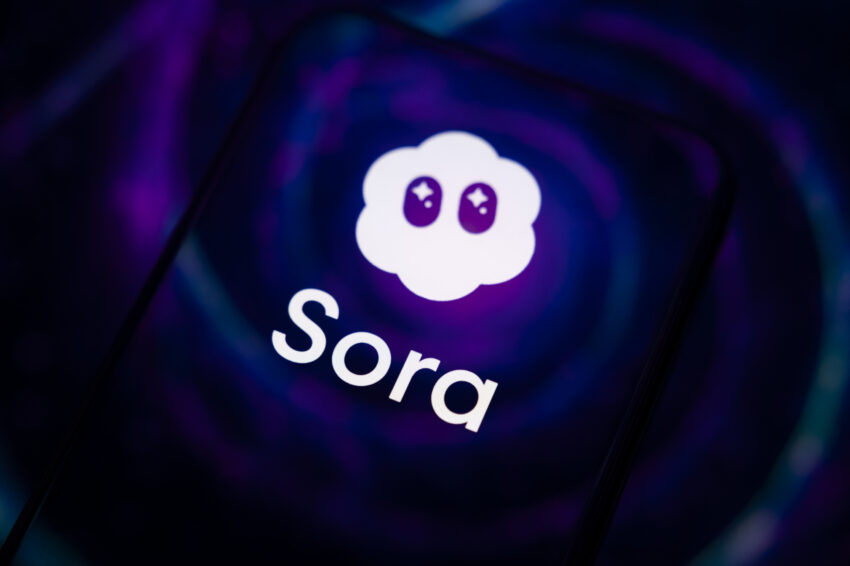
openai launches its sora app on android OpenAI has officially launched its AI video app, Sora, on the Android platform, expanding its reach to a broader audience.
openai launches its sora app on android
Overview of Sora’s Launch on Android
On Tuesday, OpenAI announced that its innovative app, Sora, is now available for download on the Google Play Store. This launch marks a significant step for the company, as it aims to enhance user engagement and creativity through AI-generated video content. The app is currently accessible in several countries, including the United States, Canada, Japan, Korea, Taiwan, Thailand, and Vietnam. This rollout follows the app’s successful debut on iOS in September, where it garnered over 1 million downloads within just five days.
Features of Sora
Sora is designed to provide users with a seamless experience in creating, sharing, and remixing AI-generated videos. The app offers a TikTok-like feed, allowing users to scroll through a variety of AI-generated content. This engaging interface encourages users to explore different styles and formats of video creation.
Cameo Feature
One of the standout features of Sora is its “cameo” functionality, which allows users to create personalized content starring themselves or their friends. This feature leverages advanced AI algorithms to generate realistic video clips, making it easier for users to produce engaging content without requiring extensive video editing skills. The cameo feature has been particularly popular among users, as it enables them to create unique and shareable videos that can be enjoyed by their social circles.
Character Cameos
In addition to the standard cameo feature, OpenAI has introduced the ability to create “character cameos” using reusable avatars. This functionality allows users to generate videos featuring beloved characters or personalities, further enhancing the app’s creative potential. The company has indicated plans to eventually allow rightsholders to charge extra for cameos of popular characters and individuals, potentially opening new revenue streams for content creators and rights holders alike.
Criticism and Controversies
Despite its innovative features and rapid growth, Sora has not been without controversy. The app has faced criticism regarding its approach to deepfakes and copyright protections. Concerns have been raised about the ethical implications of using AI to create realistic video representations of individuals without their consent. This has led to discussions about the need for clearer guidelines and protections for content creators and rightsholders.
Reversal of Opt-Out Policy
In response to the backlash, OpenAI has reversed its opt-out policy for rightsholders. Initially, the app allowed users to opt out of having their likenesses used in AI-generated content. However, the criticism surrounding the potential misuse of deepfake technology prompted the company to reconsider its stance. This change aims to provide greater protection for individuals whose images or likenesses may be used in Sora’s video generation process.
Market Implications
The launch of Sora on Android has significant implications for the market landscape of AI-driven content creation. As more users gain access to the app, the potential for viral content increases, which could lead to a surge in user-generated videos. This trend aligns with the growing popularity of short-form video content across various social media platforms, including TikTok and Instagram Reels.
Competitive Landscape
OpenAI’s entry into the AI video app market positions it against several established players. Companies like TikTok, Instagram, and Snapchat have already integrated AI features into their platforms, making the competition fierce. However, Sora’s unique focus on AI-generated content and its user-friendly interface may provide it with a competitive edge. The app’s ability to create personalized and engaging videos could attract a diverse user base, from casual creators to professional content producers.
Stakeholder Reactions
The launch of Sora has elicited a range of reactions from stakeholders across the tech and creative industries. Content creators, in particular, have expressed excitement about the app’s potential to simplify video production and enhance their creative capabilities. Many see Sora as a tool that democratizes content creation, allowing individuals without extensive technical skills to produce high-quality videos.
Concerns from Rights Holders
On the other hand, rights holders and industry experts have voiced concerns about the implications of AI-generated content on copyright and intellectual property. The ability for users to create videos featuring recognizable characters or personalities raises questions about ownership and consent. As the technology continues to evolve, it will be crucial for stakeholders to engage in discussions about ethical practices and legal frameworks surrounding AI-generated content.
Future Developments
Looking ahead, OpenAI has ambitious plans for Sora. The company aims to continuously enhance the app’s features and capabilities, responding to user feedback and industry trends. As the demand for AI-generated content grows, OpenAI is likely to explore additional functionalities that could further enrich the user experience.
Potential for Monetization
The introduction of monetization options for rightsholders could significantly impact the app’s ecosystem. By allowing creators to charge for cameos of popular characters, OpenAI could foster a marketplace for digital content that benefits both creators and rights holders. This approach may encourage more individuals to engage with the app, knowing that they have the potential to earn revenue from their creations.
Conclusion
The launch of Sora on Android represents a pivotal moment for OpenAI and the broader landscape of AI-driven content creation. With its innovative features and user-friendly interface, Sora has the potential to reshape how individuals create and share video content. However, as the app navigates the challenges of copyright and ethical considerations, it will be essential for OpenAI to strike a balance between creativity and responsibility. The ongoing dialogue among stakeholders will play a crucial role in shaping the future of AI-generated content and its implications for the creative industries.
Source: Original report
Was this helpful?
Last Modified: November 5, 2025 at 12:37 am
1 views















